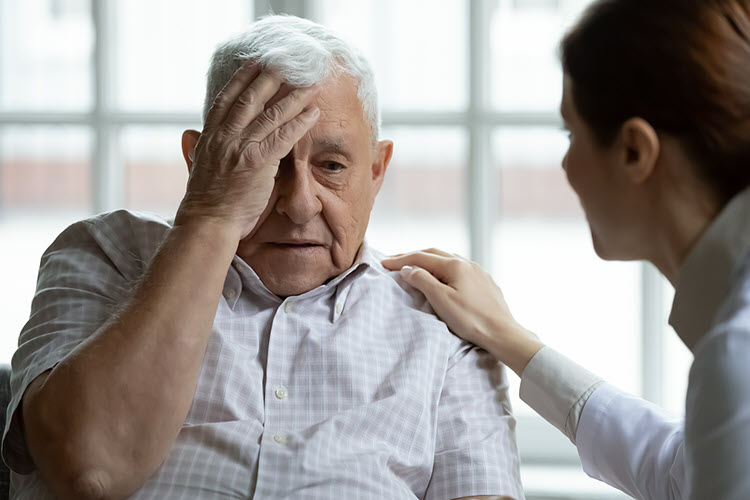What exactly IS an Ombudsman?
I had the pleasure of meeting Laurie Facciarossa Brewer, NJ Long-Term Care Ombudsman, when she presented for the United Way of Northern NJ Caregivers Coalition. I knew there was an office of an Ombudsman in every state, but I did not understand the function of the office and the critical part it played during COVID-19.
If you or a loved one is living in a Long-Term Care facility (Skilled Nursing, Assisted Living, Rehabilitation or State Psychiatric Hospital) and are unhappy about how you are treated or feel you are being neglected, you have an advocate in your Long-Term Care Ombudsman (LTCO). This federally funded program, founded under the Older Americans Act, is available in every state. To find one in your state and learn about additional resources, go to the LTC Ombudsman Org website.
The sole focus of the LTCO program is to advocate for, and be the voice of, long-term care residents and to empower these residents to advocate for themselves whenever possible. They accomplish this goal through investigation and resolution of abuse, exploitation or conflict complaints. They advocate for the right to receive information in a language that you understand or considerations if you are hearing or sight impaired. This work is based on the belief that everyone deserves to be treated with respect and dignity.
Complaints run the gamut. The most common are physical or verbal abuse such as rough handling, poor incontinence care, the amount of time to answer call bells, a disrespectful tone of voice or way of addressing someone. In addition, you have the right to get what you want, such as a hot cup of coffee every day and flavorful meals, served at an appropriate temperature. The LTCO staff works tirelessly to ensure residents thrive, not merely survive.
The pandemic adds a new level of urgency to ensuring long-term care (LTC) residents thrive. The focus throughout the year was on visitation and a press for more freedoms. In NJ, the NJ LTCO used federal funds from the Cares Act to create a social isolation project. Under this project, social workers have been hired to visit long-term care facilities, talk to LTC residents and evaluate if they are receiving regular and consistent communication with family and friends and to determine if they are engaged in meaningful activities and have opportunities for social interaction with their peers.
Over a year into the pandemic, the LTCO continues to work to ensure that residents have as much freedom of movement within the long-term care facility as possible and that residents have the ability to receive visitors and participate in meaningful activities, regardless of the outbreak status of the building. The federal guidance on visitation in long-term care facilities is constantly changing and it is this federal guidance that informs state visitation rules. While the federal and state guidance both suggest that residents stay in their rooms during outbreak testing or while the facility is technically in outbreak status, residents are not and have never been required to stay in their rooms for months on end. Still, this is happening and the toll this has taken on the residents’ health and wellbeing is well documented. Along with this lack of socialization, the loss of meaningful activities is another outgrowth of the pandemic that LTCO staff is working to bring back as quickly as possible.
“Both advocates for residents and LTC staff worked through a hellish experience and acquitted themselves heroically. Residents and staff members got sick and died. We are dealing with folks on both ends who were traumatized by this experience.”
“Where you stand depends on where you sit. When it comes to addressing social isolation and lack of connection, there will always be a push pull. Residents want more activities, to see their family, to leave their room and the building. Our obligation was to put pressure on the facilities to do just that. At the same time, much of what New Jersey did was directed by the federal government. The State of NJ has proceeded cautiously and carefully on the gradual loosening of restrictions. For instance, on May 12, the NJ Department of Health stated that communal dining and communal activities can resume in all LTC facilities. This new guidance came just a week or so after the federal government issued similar guidance. This is a huge step forward.”
Laurie Facciarossa Brewer
NJ Long Term Care Ombudsman
In next week’s article, Laurie defines “essential caregivers”, changes that would help residents in facilities and their caregivers and what she hopes comes out of the pandemic.
Deb is available as a caregiver consultant. She will answer the question: “Where do I start?” and find the resources to alleviate your stress. If you would like to invest a half hour to learn how she can help you, please contact her at: Free 30 minute consulting call
Deb is the author of “Your Caregiver Relationship Contract.” This book explains how to have an intentional conversation and the how unspoken expectations can cause problems. Click here to learn more about Your Caregiver Relationship Contract.

